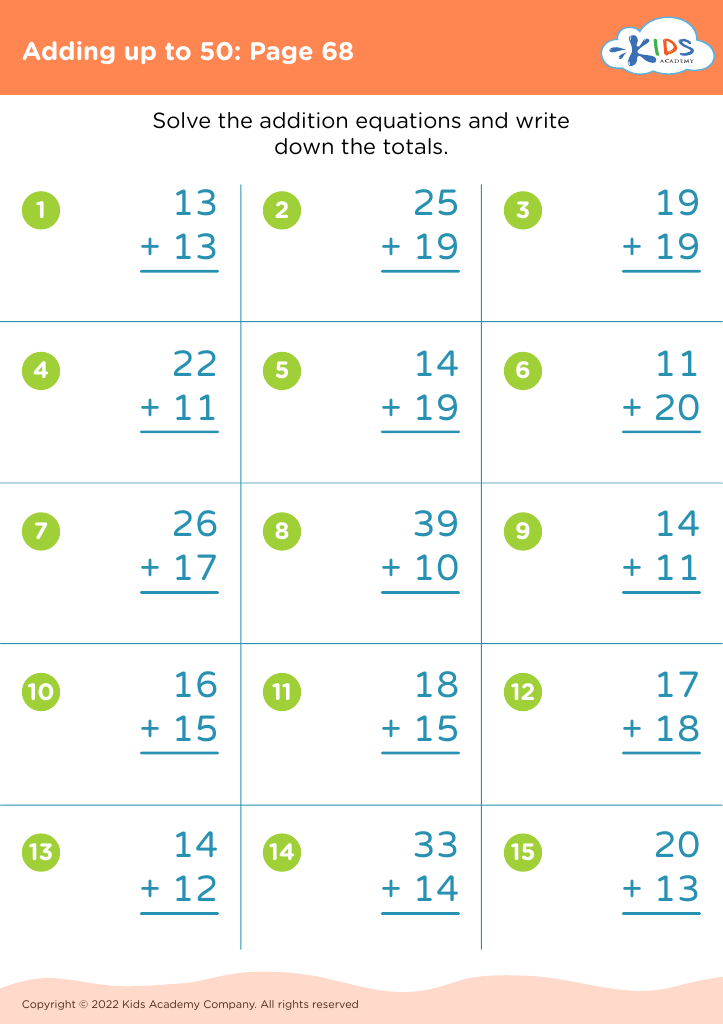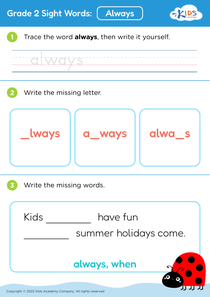Recognizing equivalent fractions Grade 2 Addition Worksheets
4 filtered results
-
From - To
Enhance your second grader’s understanding of fractions with our "Recognizing Equivalent Fractions Grade 2 Addition Worksheets." Specifically designed for young learners, these engaging worksheets employ colorful visuals and simple exercises to teach the concept of equivalent fractions in a fun, accessible manner. Each activity is aimed at developing fundamental math skills through addition-focused tasks, reinforcing concepts like halves, thirds, and quarters, and illustrating the importance of numerical relationships. Ideal for both classroom use and homeschool settings, these worksheets help build a strong foundational understanding of fractions, boosting your child's confidence and proficiency in math.
Recognizing equivalent fractions and understanding Grade 2 addition are fundamental skills that lay the groundwork for a child's future success in mathematics. For parents and teachers, prioritizing these concepts early on is crucial.
Equivalent fractions represent the same part of a whole, and grasping this concept builds a child's numeracy and critical thinking skills. It allows children to understand that quantities can be represented in multiple ways, fostering flexibility in mathematical thinking. For instance, realizing that 1/2 is the same as 2/4 helps students compare, simplify, and compute fractions more easily. This is applicable in real life, such as in dividing portions of food or comparing different measurements.
Grade 2 addition further cements basic arithmetic, a cornerstone for all future math learning. Proficiency in addition equips children with the necessary skills for more advanced topics like multiplication, division, and algebra. It enhances problem-solving abilities and logical reasoning, essential life skills that go beyond the classroom. Moreover, being competent in addition promotes confidence in children, encouraging a positive attitude towards more challenging math concepts as they progress in their education.
In summary, mastering equivalent fractions and Grade 2 addition forms the bedrock of mathematical understanding, enhancing a child's academic journey and real-world problem-solving capabilities.
























